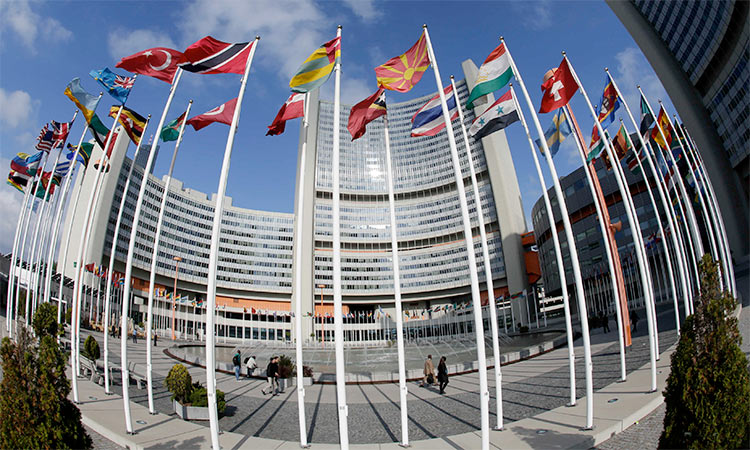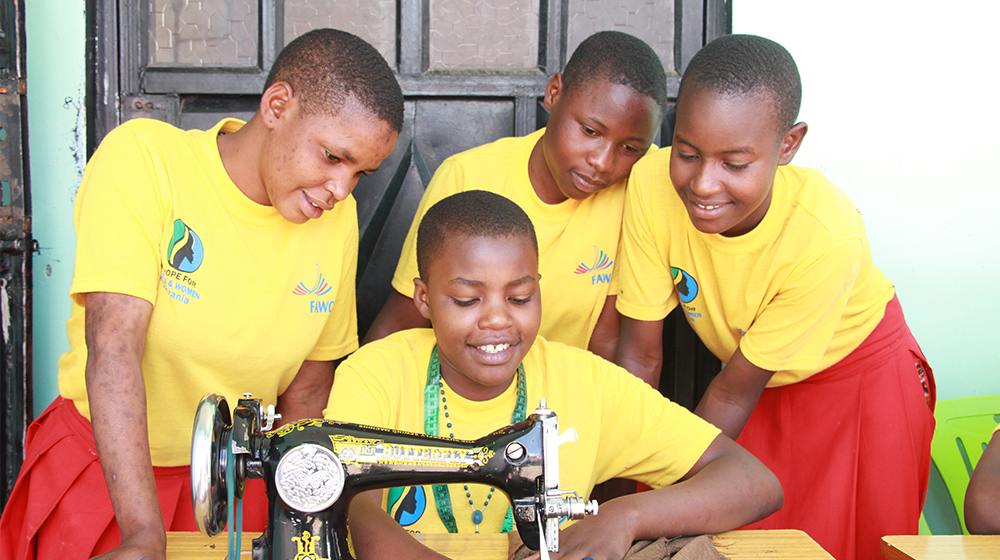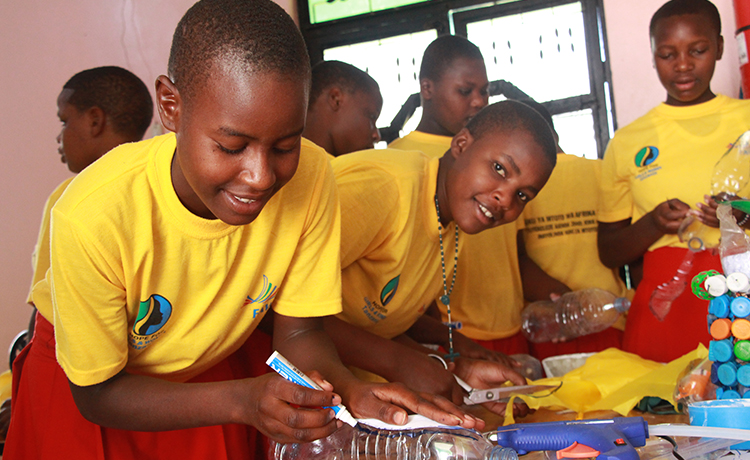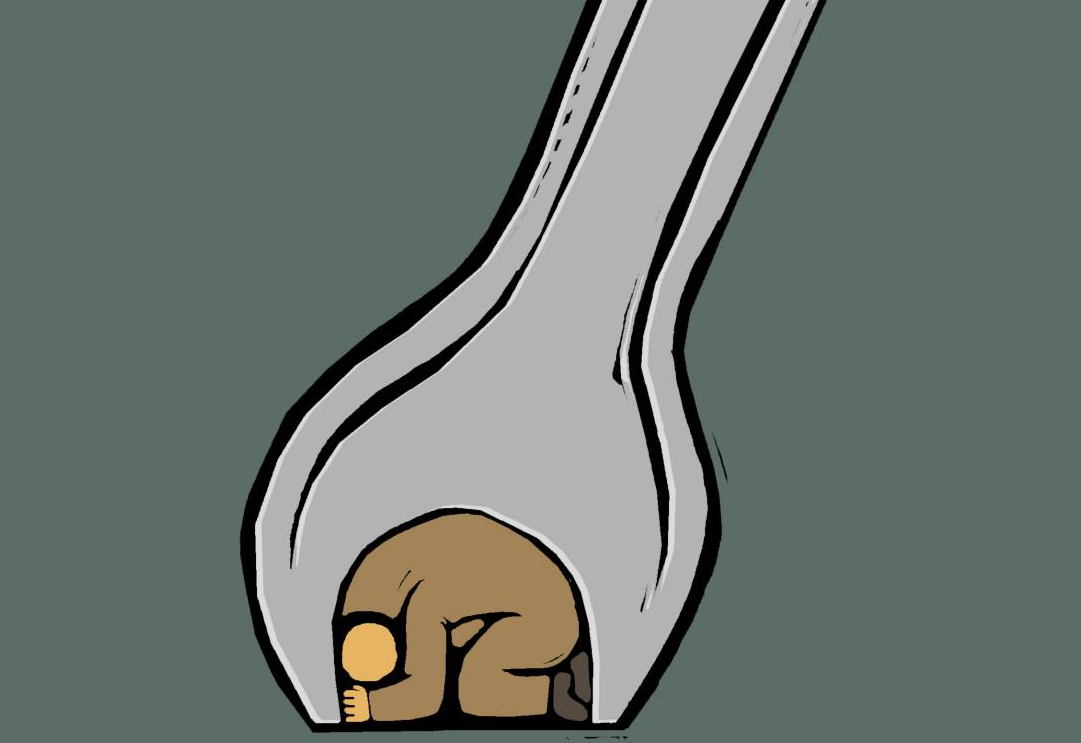If Biden is to Keep From Losing the Election He Needs to Stop the Middle East War
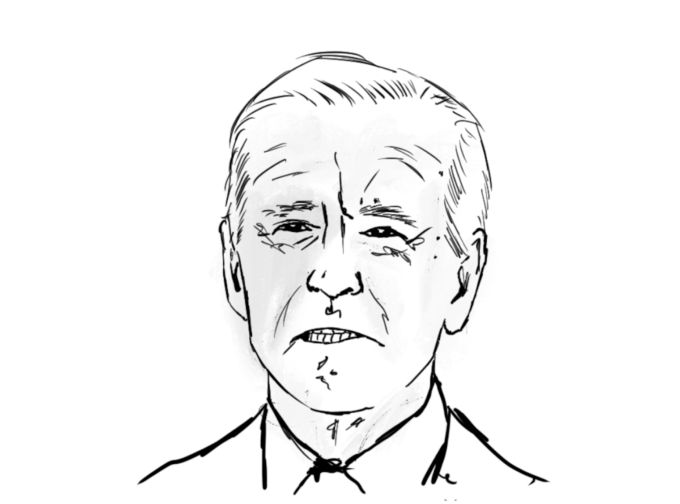
Drawing by Nathaniel St. Clair
Democrats must realize that despite keeping our troops out of Gaza, the longer the Israeli-Hamas War continues, the more the public will see the Israeli-Hamas War as President Joe Biden’s War. Even though the U.S. is only one of ten governments that support Israel in the war against Hamas, we are by far the most significant foreign funder of Israel’s military.
Under President Barack Obama, we established a ten-year commitment to provide $3.8 billion annually for Israel’s military and missile defense systems. Both Democrats and Republicans immediately wanted to send additional billions more to Israel after October 7.
Biden requested at least $14.3 billion in further military assistance to Israel. House Republicans countered by wanting to provide Israel with $17 billion without any funds allocated to Ukraine. Both bills failed to pass the House.
Not only did both parties quickly jump to support Israel, but an October 11th poll showed two-thirds of Americans also supported Israel.
Still, support for Israel started splintering. According to data collected by an academic project, the Crowd Counting Consortium, within ten days of October 7, there were 180,000 demonstrators, with roughly 270 events in solidarity with Israel and 200 in support of Palestine.
As Israel started bombing civilian housing and hospitals in Gaza to flush out Hamas fighters, the United Nations reported that 1.9 million Gazans had been internally displaced, with more than 1 million of them lacking a safe and secure home.
Consequently, the polls saw younger voters between 18 and 34, who are generally Democratic voters, disapproving of Biden’s handling of the war by an estimated 70%.
With Biden still refusing to call for an immediate cease-fire in the war, angry protestors started showing up at his campaign rallies.
In January, anti-war protestors interrupted more than a dozen times while Biden tried to address democratic voters in Virginia. The next day, he was repeatedly interrupted again at his endorsement rally held by the United Auto Workers.
Worse yet for Biden, he began to feel the squeeze from both sides of the political spectrum. The left was attacking Biden for not cutting military aid to Israel as their army was creating a humanitarian crisis in Gaza.
The right was demanding that he directly retaliate against Iran’s proxy paramilitary groups. They were attacking U.S. troops in the Middle East to punish America for not calling a halt to Israel’s Gaza invasion.
Biden’s troubles began when he abandoned his usually cautious diplomatic approach to conducting foreign affairs and gave a pass to Israel to bombard and then invade Gaza. Biden called Israel Prime Minister Netanyahu on October 7,saying his support for Israel is “rock solid” and America stood “ready to offer all appropriate means of support.”
Previously, he criticized Netanyahu, who leads the most right-wing government in Israel’s history. Believing that Netanyahu was trying to gut Israel’s independent judiciary to favor Israel’s fundamentalist factions, Biden had dodged meeting with Netanyahu for months.
More importantly, Biden’s administration warned Netanyahu that their plans to expand their settlements in the West Bank by 13,000 new housing units undermined the viability of a two-state solution to the Israel-Palestinian conflict. Then he
blamed the right-wing members of Netanyahu’s cabinet for justifying Israeli settlers attacking Palestinian citizens in the West Bank.
Netanyahu ignored these comments and announced that his government opposed any two-state solution that Biden and most past administrations had endorsed.
With Netanyahu’s right-wing party in complete control of Israel’s war plans, Biden has disappointed many American liberals, youth, and minorities. They see him as enabling Israel’s invasion and subsequent destruction of Gaza’s infrastructure and the deaths of over 10,000 children.
Offering Netanyahu’s administration unqualified support has checked his ability or willingness to restrain Israel’s massive military response. Netanyahu ignores any restraint or concerns about civilian casualties voiced by Biden.
Unable to influence Israel, Biden has appeared as an ineffective and weak leader to his supporters, the American public, and world leaders. And one that he is too old to continue as president. A characterization that conforms perfectly to Trump’s campaign message.
Meanwhile, Netanyahu’s National Security Minister, Ben Gvir, leader of Jewish Power, a far-right political party, belittles Biden. In a Wall Street Journal interview, Gvir accused the Biden administration of benefitting Hamas more than Israel.
Gvir said, “Instead of giving us his full backing, [President Joe] Biden is busy with giving humanitarian aid and fuel, which goes to Hamas; if Trump were in power, the US conduct would be completely different.”
Netanyahu seems to share Gvir’s view when he says, “As a sovereign state fighting for its existence and future, we will make our decisions by ourselves.” Note that Netanyahu’s administration would fall without Jewish Power’s support as a coalition member in the government.
Netanyahu is counting on Republicans to push Biden to hit Iran and the military groups it funds, referred to as Iran’s Axis of Resistance, which surround Israel. Israel expects that the U.S. attacking these groups should diminish their ability to harm Israel directly.
Iran claims that they don’t control their proxy militaries, and Middle East analysts acknowledge that Iran does not necessarily have complete control over their actions. However, Iran helped create some, like Hezbollah, and provides arms to all of them. In addition, some are closely linked to Iran ‘s Revolutionary Guards, which have an estimated 125,000-strong military, making it the Middle East’s largest Muslim army.
What began as Biden supporting Israel’s self-defense is transforming into a regional warfare between the U.S. and Iran-backed hardline fundamentalist armed groups. Looming on the horizon is a direct exchange of firepower between Iran and the U.S.
Iran and its allied para-military groups not only oppose Israel’s existence but, more immediately, the current stationing of our 30,000 troops in this Muslim-controlled region. After October 7, Iran’s proxies moved from scattered confrontations to direct attacks on our troops and warships.
In early January, Yemen’s Houthi militants fired several powerful Russian anti-ship missiles at U.S. destroyers in the Red Sea. Fortunately, they were destroyed before hitting the ships. Given that since Oct. 7, there have been 160 drone attacks against American soldiers and allies in the Middle East, American soldier fatalities would seem to be inevitable.
As a result, a paramilitary group attacked a remote U.S. military outpost on January 28 in northeastern Jordan, killing three army reservists and injuring at least 34 others.
The media widely and wrongly declared that these three deaths marked the first time U.S. soldiers have died as a direct result of an armed attack by an Iran-backed paramilitary group.
Republican leaders demanded retribution. Senator Lindsey Graham said, “I am calling on the Biden Administration to strike targets of significance inside Iran.” Graham told Fox News that the Biden should blow up their oil fields and Revolutionary Guard headquarters in Iran to deter its future aggression toward our troops.
The most senior Republican on the Senate Armed Services Committee, Roger Wicker, said: “We must respond to these repeated attacks by Iran and its proxies by striking directly against Iranian targets and its leadership.”
Partisanship made Graham and Wicker forget that during President Ronald Reagan’s Administration, 241 American soldiers were killed in Lebanon in October 1983 by Hezbollah, founded by Iran’s Revolutionary Guards.
At that time, Republicans refrained from advising Reagan to take the provocative actions that Senators Graham and Wicker now want Biden to embrace. Nevertheless, Biden is blamed for skirting military reprisals as cuddling Iran, ignoring that a direct attack on Iran would likely lead our current ground troops into combat.
Trump recognizes that Biden has only a narrow path to exert a peaceful solution. Like Richard Nixon, who campaigned and won against Hubert Humphry in 1968, Trump can present himself as the only candidate who can end the war favorably for the US and Israel.
Using Nixon as a role model, he also will not present a plan because he doesn’t need one. He need only accuse Biden of making mistakes and boast that he would not make them as a president.
Biden faces an uphill battle to win a second term. He must get Democrats to accept that he is being fair to both the Israelis and the Palestinians. And convince independents that he can keep our nation out of war.
To win back fallen-away Democrats to win the presidency, he needs to seriously pressure Netanyahu’s administration to abandon their unrealistic goal of permanently eliminating Hamas.
Israel’s strategy of eradicating fundamentalist militant groups failed miserably when Israel invaded Lebanon in October 1982 to destroy the PLO. The year after PLO was kicked out of the country, Hezbollah took control over southern Lebanon.
Israel killing thousands of innocent Gaza residents is only going to lead to future wars with the survivors of this war. And it could drag the U.S. deeper into the Middle East quagmire of fighting on multiple fronts in a guerilla type of warfare.
Biden can learn from the past presidents who have supported Israel as a nation-state in the Middle East but who had a firm and fair hand in avoiding an unlimited commitment to actions that do not directly serve our interests.
President Harry S. Truman conferred recognition on the State of Israel after it declared independence in May 1948, but he didn’t provide military assistance to Israel. A situation now that is unthinkable by both Democrats and Republican Parties.
President Dwight D. Eisenhower was able to force Israel to return the Sinai to Egypt after Israel captured it in a war between them due to Egypt blockading a key Israel seaport.
In November 1966, when the Israelis attacked the West Bank, President Lyndon B. Johnson had the U.S. vote for a United Nations Resolution condemning Israel’s action. He then sent an emergency airlift of military equipment to Jordan. The message to Israel was that the U.S. was not going to let Israel determine our foreign policy.
President Jimmy Carter brokered the 1978 Camp David Accords after he sequestered Egypt’s President and Israel’s Prime Minister at Camp David for two weeks to reach an agreement ending three decades of intermittent war between them.
President Ronald Reagan approved Israel invading Lebanon in 1982 to destroy the PLO for attacking northern Israel. Reagan’s pyrrhic victory cost between 17,000 and 40,000 Palestinian and Lebanese lives. The day after Iran’s proxy group Hezbollah killed over two hundred U.S. Marines, Reagan said that our soldiers “must stay there until the situation is under control.”
In February 1983, he said, “If we’re to be secure in our homes and in the world, we must stand together against those who threaten us.” Just three days later, Reagan ordered Marines to pull out of Lebanon, with a complete withdrawal achieved in three weeks. Israel continues to exist, along with Hezbollah in Lebanon, despite Reagan removing all U.S. military from that country.
Past presidents had to make hard decisions on what was best for the U.S. over that of any ally, including Israel. Successful experiences show they can support a secure Israel rather than an aggressive one. That is a lesson that Biden must learn from former presidents.
Biden belatedly took a small step by sanctioning non-American West Bank Israeli settlers from terrorizing their Palestinian neighbors. However, it was a gesture lost in the massive media coverage of thousands of innocent children killed by Israel bombing their homes in search of Hamas.
Biden can achieve his goal of America defending Israel’s right to exist and working with Palestinians to create a democratic, self-ruled state. To do so, he should take advice from Netanyahu: make decisions that are best for your nation and not just for your allies.
As a democratic society, we benefit by promoting the welfare of other societies and not contributing to their destruction, which will generate more violent conflicts for future generations. Biden should articulate that principle in his campaign and with his actions as president. Thus, he can force Trump to say how he intends to end the Israeli–Hamas war and not perpetuate U.S. involvement in Middle East wars.




